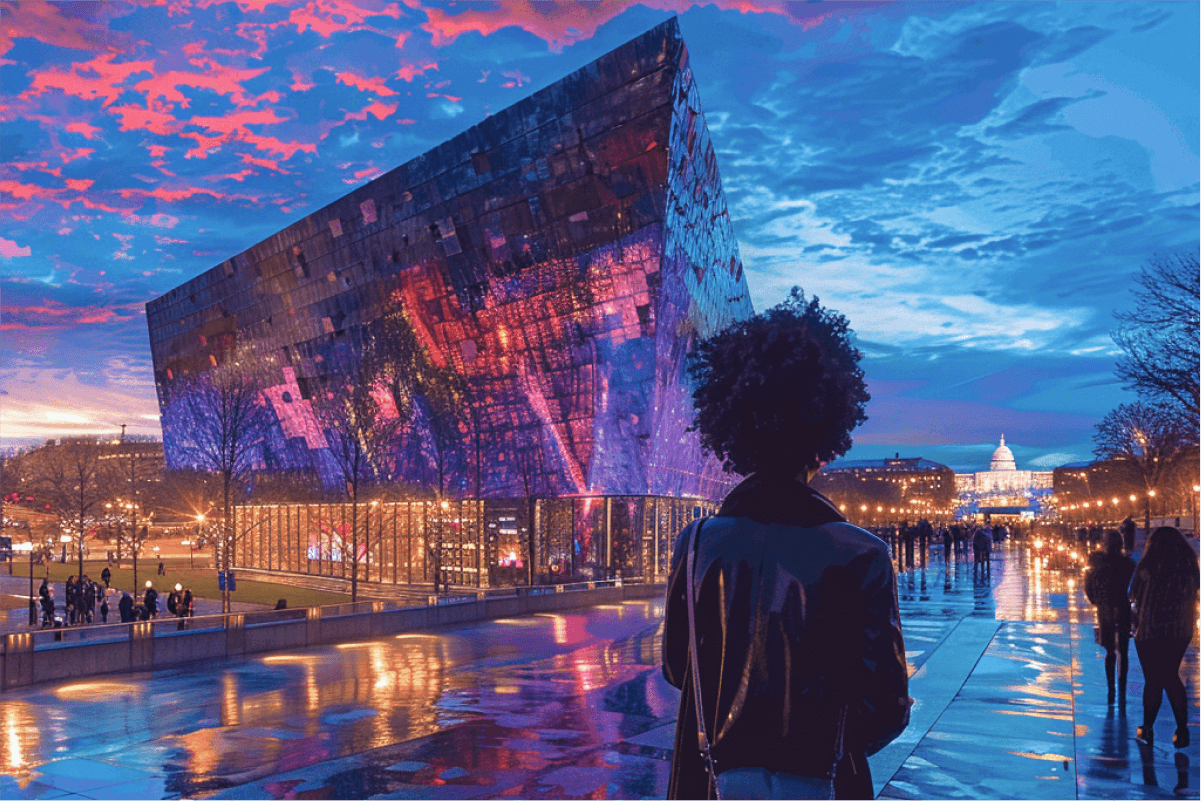Are you looking for fun and educational kids’ music activities near the National Museum of African American History and Culture? Look no further! In this article, we will explore the various music-related opportunities that are available for children in the area. From learning about the rich musical heritage of African American culture to participating in interactive workshops and attending family-friendly concerts, there’s something for every young music enthusiast to enjoy. Read on to discover how you can make the most of your visit to the museum and engage your children in the world of music.
Exploring the National Museum of African American History and Culture
If you’re planning a visit to the National Museum of African American History and Culture, you’re in for a treat. This renowned museum is dedicated to preserving, documenting, and celebrating the African American experience. As you explore the exhibits, you’ll discover the significant role that music plays in African American culture.
From spirituals and blues to jazz and hip-hop, music has always been an integral part of the African American community. Through engaging displays, interactive exhibits, and multimedia presentations, the museum brings the history and impact of African American music to life. It’s a fascinating opportunity for kids to learn about the origins and evolution of various music genres and gain an appreciation for the contributions of African American musicians.
The Importance of Music in African American Culture
Music has always been a powerful means of cultural expression in African American communities. It has been a way to communicate, heal, celebrate, and protest. Throughout history, music has played a central role in the struggle for civil rights and social justice. By exposing your children to the music and stories of African American musicians, you can help them understand the significance of music as a form of self-expression and empowerment.
Imagine standing in front of an exhibit that showcases the iconic song “We Shall Overcome,” a rallying cry during the Civil Rights Movement. As you listen to the soul-stirring melody and read the lyrics, you can’t help but feel the weight of history and the power of music to unite and inspire change. This is just one example of the emotional impact that the National Museum of African American History and Culture offers visitors.
Kid-Friendly Exhibits at the Museum
The National Museum of African American History and Culture has several exhibits that are specifically designed for young visitors. From interactive displays to hands-on activities, these exhibits offer children a chance to actively engage with the music and history of African Americans.
One such exhibit is the “Making a Way Out of No Way” exhibit, which explores the music and stories of African American children during the hardships of slavery. Through multimedia displays and interactive stations, kids can learn about the role of music in providing hope and strength to those facing adversity. They can even try their hand at playing traditional African instruments, experiencing firsthand the rhythms and melodies that have shaped African American music.
Another exhibit, “Rhythms of Resistance,” delves into the protest songs and artistic expressions that emerged during the Civil Rights Movement. This exhibit not only highlights the significance of music in driving social change but also encourages children to think critically about the power of music in shaping society. Through thought-provoking displays and interactive installations, kids can explore the lyrics and messages behind iconic songs like “A Change Is Gonna Come” by Sam Cooke and “We Shall Not Be Moved” by Mavis Staples.
Music Activities for Kids in the Area
While visiting the National Museum of African American History and Culture is a fantastic way to introduce your children to the world of music, there are also plenty of other fun music activities available in the area.
Interactive Music Workshops for Children
Several organizations in the vicinity offer interactive music workshops and classes specifically tailored for children. These workshops provide hands-on experiences, allowing kids to explore different musical instruments, rhythms, and styles. Whether it’s learning to play the drums, experimenting with African percussion, or trying out a keyboard, these workshops offer a fun and educational way for children to discover their musical interests.
By participating in interactive music workshops, your kids can develop a deeper understanding of various musical concepts and gain valuable skills that can enhance their appreciation for music.
Family-Friendly Concerts and Performances
Attending family-friendly concerts and performances is another wonderful way to introduce your children to the world of music. In the area surrounding the National Museum of African American History and Culture, you’ll find a plethora of venues that host concerts specifically tailored for young audiences.
These concerts often feature lively and interactive performances, allowing children to sing along, dance, and engage with the music. Whether it’s a children’s choir, a jazz ensemble, or a family-friendly musical, these performances provide an immersive musical experience that can inspire and entertain children of all ages.
Music Education Opportunities for Kids
If your child shows a keen interest in music, you may want to explore the various music education opportunities available near the National Museum of African American History and Culture.
Music Classes and Lessons for Children
Many music schools and organizations in the area offer music classes and lessons specifically designed for children. These classes cater to various age groups and skill levels, allowing children to learn about music theory, develop their technique on specific instruments, and explore different musical styles.
Through music classes and lessons, children can learn valuable skills such as discipline, teamwork, and creativity. Additionally, these experiences can foster a lifelong love for music and provide a solid foundation for further musical pursuits.
Music Festivals and Events for Young Audiences
Music festivals and events that are geared towards young audiences are a fantastic way to immerse your child in a diverse range of musical performances and genres. These events often feature not only live music but also interactive workshops, instrument petting zoos, and opportunities to meet and learn from professional musicians.
Attending music festivals and events can expose your child to a variety of musical styles and cultures, broaden their musical horizons, and ignite their passion for exploring different genres.
Planning Your Visit to the Museum and Music Activities
As you plan your family outing to the National Museum of African American History and Culture and the surrounding music activities, here are a few tips to help you make the most of your experience:
Tips for a Successful Family Outing
- Check the museum’s website for any updates or special events happening during your visit. This will help you plan your itinerary accordingly.
- Arrive early to avoid long lines and ensure that you have enough time to explore all the exhibits.
- Consider downloading any available audio guides or kids-specific guides to enhance your children’s learning experience.
- Encourage your children to ask questions and engage with the exhibits. This will make their visit more interactive and memorable.
- Take breaks throughout your visit to rest and recharge. The museum can be quite extensive, so pacing yourselves is essential.
Nearby Dining Options for Families
After a day of exploring the museum and enjoying music activities, you and your family might find yourselves hungry and in need of some delicious food. Fortunately, there are plenty of family-friendly dining options near the National Museum of African American History and Culture.
From casual eateries to restaurants with diverse cuisines, you’ll find something to cater to everyone’s tastes. Whether you’re craving southern comfort food or international flavors, the surrounding area has something to satisfy every palate. Here is the list of restaurants nearby.
The Impact of Music on Child Development
Music has been shown to have a profound impact on child development, influencing various aspects of their cognitive, social, and emotional growth.
The Benefits of Music for Children’s Cognitive Development
Research has demonstrated that exposure to music stimulates the brain in unique ways, enhancing children’s cognitive abilities. Learning to play an instrument, for example, can improve memory, attention, and problem-solving skills. Additionally, studying music has been linked to improved mathematical and spatial reasoning abilities.
Listening to and participating in music can also help children develop language skills, as they try to understand lyrics or communicate through song. Music engages multiple areas of the brain, helping children make connections and strengthen neural pathways.
Fostering a Love for Music in Children
Introducing your children to music from a young age and encouraging their active involvement can foster a lifelong passion for music. Providing opportunities for them to explore different musical genres, attend concerts, and take music lessons can help nurture their interest and talent.
By fostering a love for music in children, you’re not only enriching their lives but also providing them with a creative outlet for self-expression and a means of connecting with others.
In conclusion, the National Museum of African American History and Culture and the surrounding area offer a wealth of music-related activities for children. From exploring the museum’s exhibits to participating in interactive workshops and attending family-friendly concerts, there are numerous ways to introduce your child to the power and beauty of music. Through these experiences, they can gain a greater understanding of African American musical heritage, develop valuable skills, and cultivate a lifelong love for music. So, plan your visit, embrace the rhythm, and let your children embark on a musical journey they’ll treasure for years to come.
You might also want to read:



